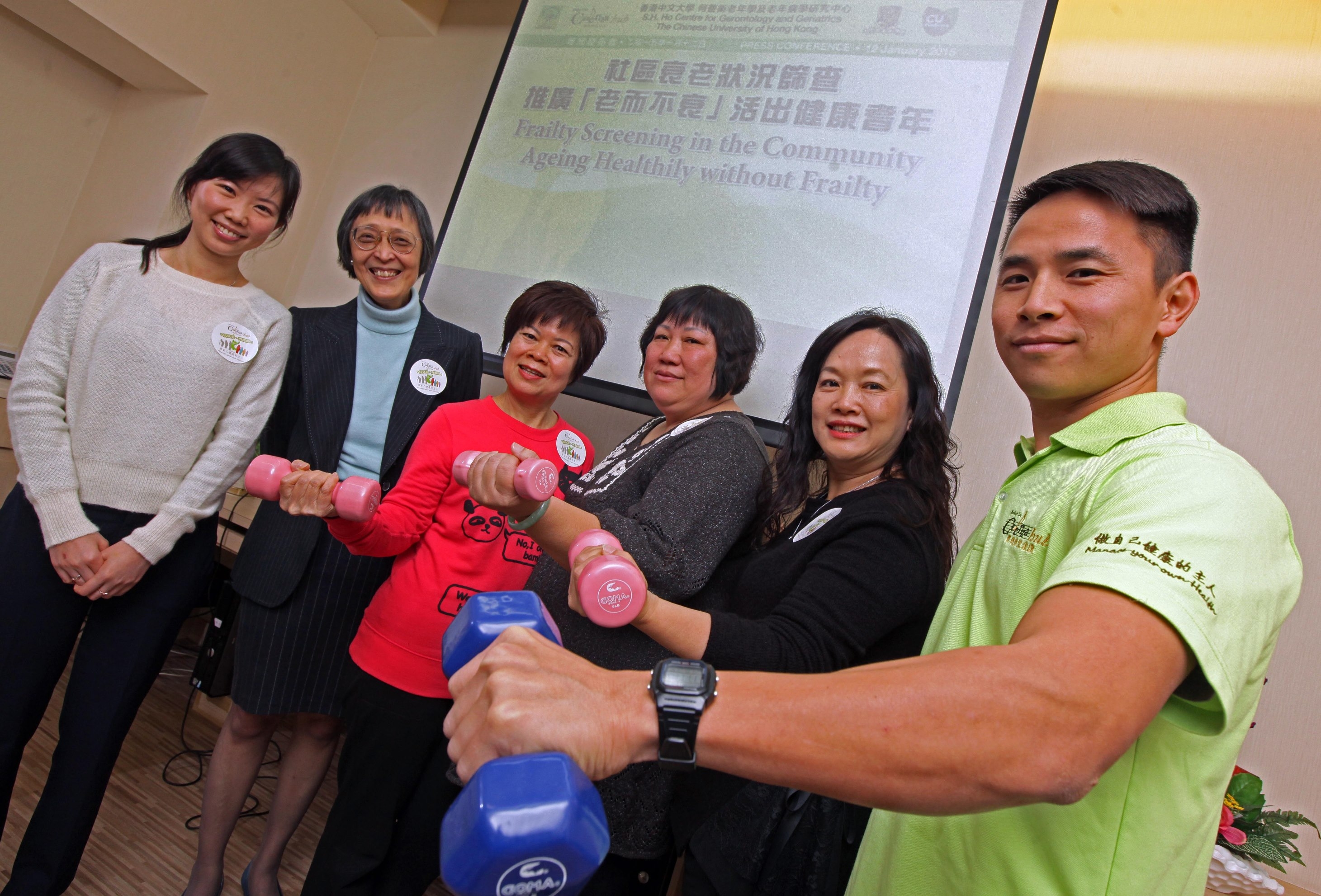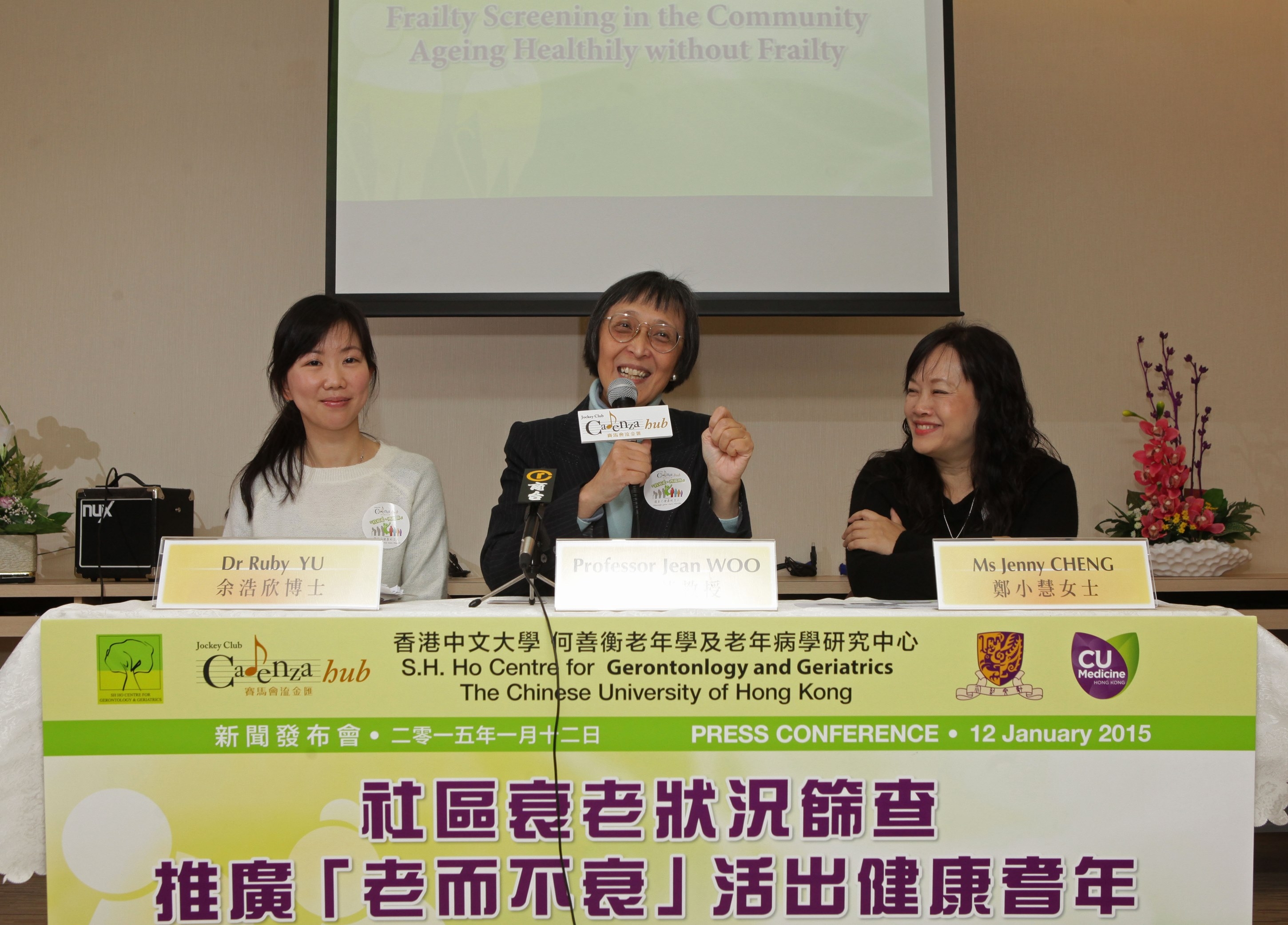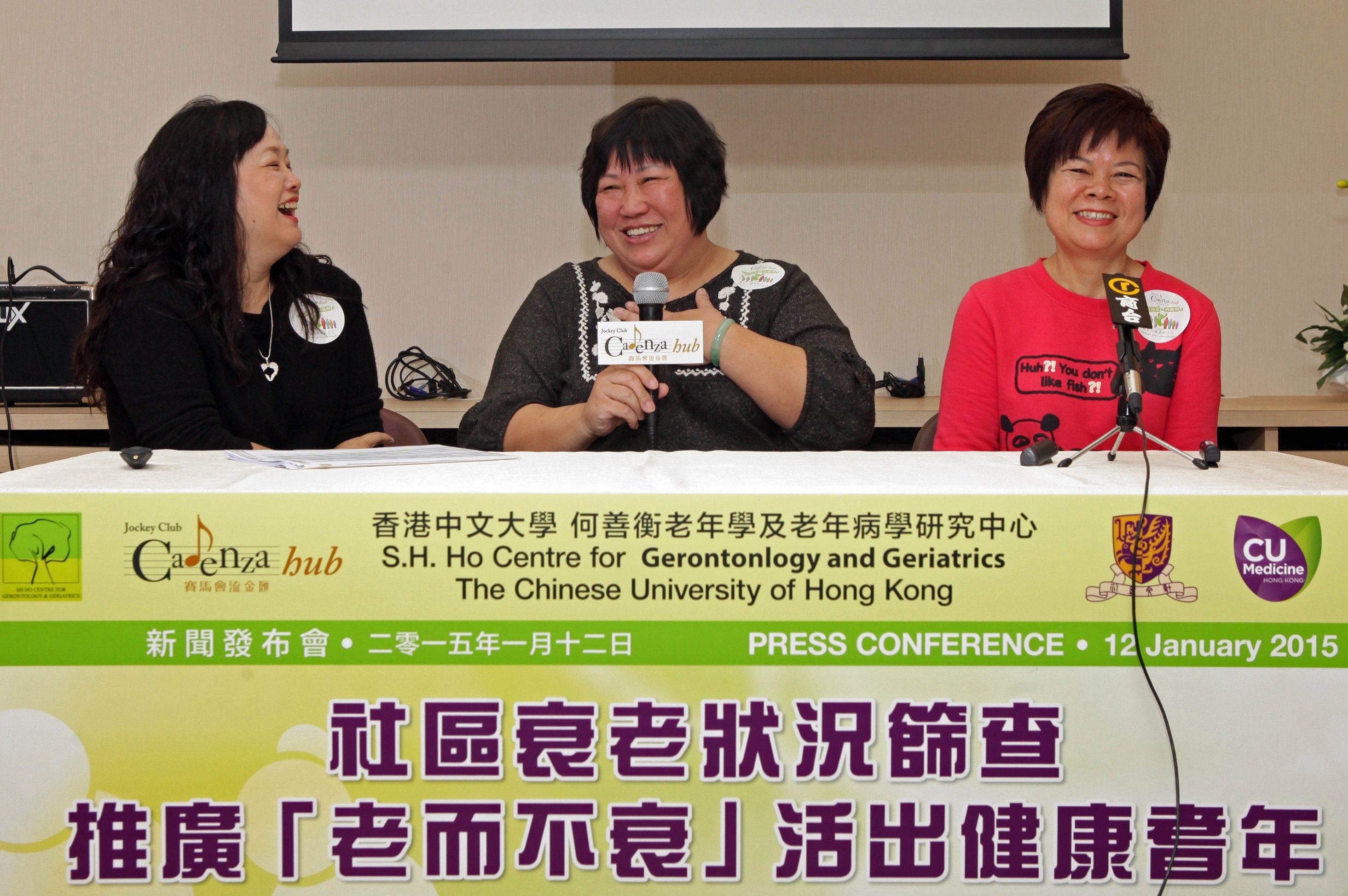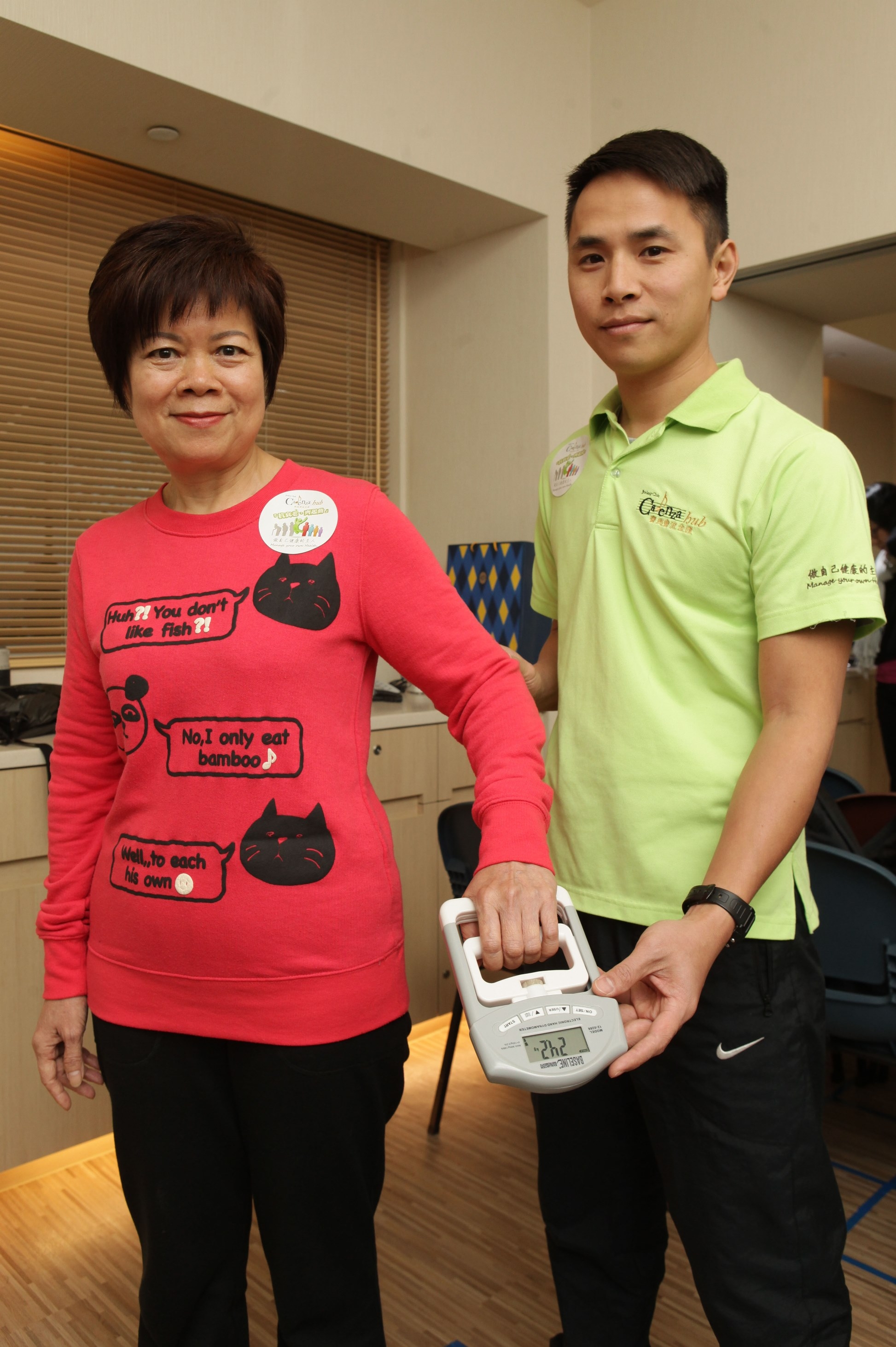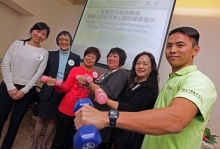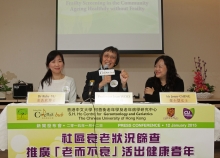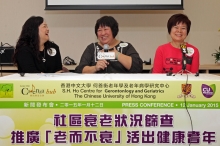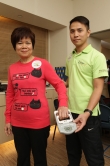CUHK
News Centre
Screening Reveals Over 50% Community-dwelling Population Aged 65 or above are Pre-frail
The Chinese University of Hong Kong (CUHK) and Jockey Club Cadenza Hub jointly conducted a screening for frailty in the community in 2014, revealing that more than half of the community-dwelling population aged 65 or above are pre-frail and about one in eight are frail. It also reveals the correlation of frailty with the number of chronic diseases and medications. Those who have higher physical activity levels show fewer signs of frailty. Timely identification of frailty in the community can facilitate healthcare services provider to offer proper intervention.
Frailty is a clinically recognized state of increased vulnerability, subdivided into physical frailty and cognitive frailty which may lead to sarcopenia, loss of skeletal muscle and strength that occurs with ageing, and some degree of cognitive impairment respectively. Older people with frailty are at a higher risk of a range of adverse health outcomes such as falls, disability, hospitalization and/or institutionalization, and mortality.
Professor Jean Woo, Chairman of Department of Medicine and Therapeutics and Director of S. H. Ho Centre for Gerontology and Geriatrics at CUHK, explained, “As the population ages, the number of people with frailty is expected to increase, adding burden to the healthcare and social service system. However, frailty is not an inevitable consequence of ageing. Older people who maintain regular physical exercise and cognitive training are more likely to remain healthy and live independently. Thus, prevention and early identification of frailty are important in delaying progressive decline.”
S.H. Ho Centre for Gerontology and Geriatrics and Jockey Club Institute of Ageing at CUHK and Jockey Club Cadenza Hub jointly carried out the frailty screening in two phases between April and October 2014. In the first phase, 816 participants were assessed by the 5-item FRAIL scale and the prevalence of robust, pre-frail and frail were found to be 35.1%, 52.4%, and 12.5% respectively. The prevalence of frailty increased with age, with 5.1% for people aged 65-69 and 16.8% for those aged 75 and above.
Participants identified as pre-frail and frail were then invited for a further comprehensive geriatric assessment. Among the 255 participants assessed in the second phase, the frail group generally had more chronic diseases, medication, falls, Activities of Daily Living (ADL) and Instrumental Activities of Daily Living (IADL) disability than the pre-frail group. They also showed signs of sarcopenia, mild cognitive impairment and depressive symptoms with poor self-rated health compared with those in the pre-frail group. Elderly who exercised an hour or more daily showed a lower prevalence of frailty.
Dr. Ruby Yu, Research Assistant Professor of the Department of Medicine and Therapeutics at CUHK, further elaborated, “The results of this study provide some insights into and raise the public awareness of frailty in Hong Kong. Early detection of frailty can allow timely intervention by healthcare or social services providers. Proper physical exercises and training can slow down the decline in bodily functions and improve mental health and living conditions.”
Professor Jean Woo (2nd left), Chairman of Department of Medicine and Therapeutics; Dr. Ruby Yu (1st left); Research Assistant Professor of Department of Medicine and Therapeutics; and Ms Jenny Cheng (2nd right), Service Manager and Nursing Officer of Jockey Club Cadenza Hub, announce the result of frailty screening.
Ivy (middle) and Ada (right) have undergone a 3-month regular training which strengthens their muscle. They can now walk for a longer distance and do exercise without feeling tired or painful.


